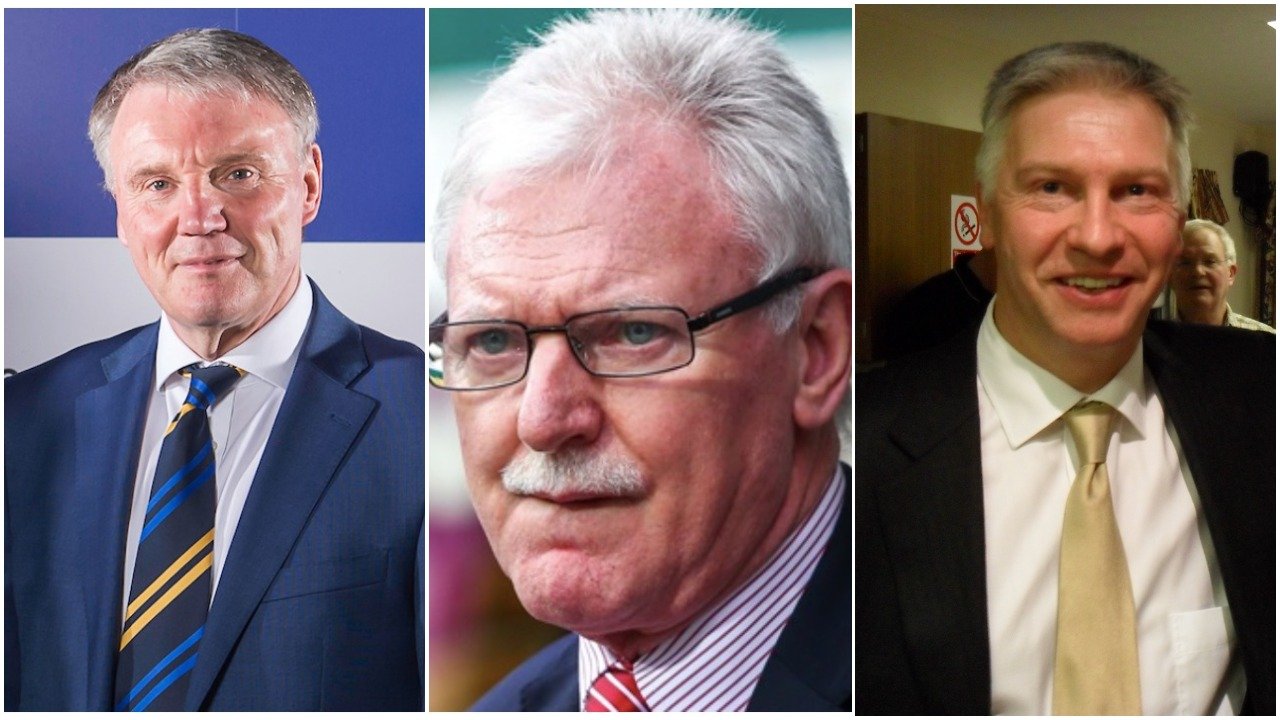
Some Super League clubs are far more lucrative than others.
But, across the board, all 12 Super League clubs have been stable (fingers crossed) for a good few years now.
Here’s how all 12 owners made their money.
Castleford Tigers
Current owner of Castleford Tigers is Ian Fulton – son of Jack and Bridie, the former whom launched Fulton’s Foods. Jack had opened the business originally for poultry in the 1960s, diversifying into frozen foods in 1974 before selling the business in 1997. Unfortunately, Jack died in September 2015 with his wife Bridie passing away weeks later, leaving son Ian with the Fulton’s Foods legacy.
Catalans Dragons
It seems meat is the way forward for Super League owners of clubs beginning with the letter ‘C’, with Catalans backer Bernard Guasch at the head of a meat processing company. Nicknamed ‘Bernard the Butcher’, Guasch has been integral for the Dragons in recent seasons with the Frenchman ploughing extra finances – and his own private jet – into the club to help them compete in Super League in 2020. Guasch finally saw rewards for his investment when the Dragons lifted the Challenge Cup in 2018.
Huddersfield Giants
Ken Davy has been Huddersfield’s backer since 1996, but his story is one of major career changes. He left school at 15 with no academic qualifications before working as a photographer for P&O and then setting up his own commercial photography business in Huddersfield. Davy joined Abbey Life – an insurance company – in 1971 and then formed his own independent financial advice company DBS which he sold for £75 million in June 2001. In 2003, he set up SimplyBiz, providing development, research and marketing services to financial advisers and later launched a national Restricted (rather than Independent) advice firm – Sandringham Partners in 2012, backed by £2m from SimplyBiz. Davy has backed the Giants throughout the summer game era, helping to propel the club from basement dwellers to silverware contenders.
Hull FC
Outspoken Hull FC owner Adam Pearson has been there and done that throughout both football and rugby league. But, the 56-year-old began his life in retail management and as a merchandiser for Marks & Spencers in the 1980s, before becoming a Commercial Director at Bairdwear PLC in 1990. From there, Pearson was appointed as the Executive Director at Leeds United in 1996 and then the owner of Hull City. Spells as Derby County owner and then Chairman of Hull City once more were finally followed by ownership of Hull FC in 2011. Pearson then launched Pro Sports Recruitment in 2013.
Hull KR
Neil Hudgell announced his decision to sell Hull KR in August last year, but as no new group or individual has taken over at the club, Hudgell is the one that will be included in this list. Of course, most people in the rugby league fraternity are familiar with Neil Hudgell Solicitors which helps people with personal injury claims, medical accidents and professional negligence claims.
Leeds Rhinos
Paul Caddick is perhaps one of the lesser-known owners in Super League, but he is perhaps the most important. Having started out as a site engineer in 1966, the Yorkshireman went onto gain a degree in civil engineering at Sheffield Hallam University in 1974. After qualifying as a Chartered Civil and Municipal Engineer, he subsequently worked for the West Yorkshire County Council Engineers Department and John Laing before establishing his own civil engineering contracting company in 1980.
Under his leadership, the business rapidly expanded into building, design build, development and property, with significant achievements including the development of the first major business park in Yorkshire, Wakefield 41 Business Park. Caddick turned his hand to rugby league, becoming owner of Leeds CF&A Co Ltd in October 1996, including ownership and development of Headingley Stadium despite being a Castleford fan growing up. Under his leadership, the Rhinos have become world champions on the field and, after years of losses, a profitable business off the field. Caddick owns 76% of the club, with Gary Hetherington the other 24%.
Leigh Centurions
St Helens
Eamonn McManus has been at the heart of St Helens for two decades, bankrolling the club to numerous finals and silverware. Going back many years, however, he read law at Cambridge University and was a solicitor in London specialising in corporate finance. He then had a twenty year career in investment banking in Hong Kong where he became divisional Chief Executive of HSBC’s Asian Investment Bank and a member of HSBC’s Global Investment Banking Committee. McManus originated and executed many of Asia’s major equity capital market transactions and mergers and acquisitions during that period, including HSBC’s acquisition of Midland Bank. He was also heavily involved China’s privatisation programme in the 1990s and was voted one of the world’s top fifty financiers in 1994 by Global Finance magazine. Eamonn returned to England in 2000 when he became a major investor in St Helens RFC and its Chairman. He has also been an advisor and investor to various private businesses.
Wakefield Trinity
Michael Carter has helped steady Wakefield in recent seasons financially and it’s no surprise really considering his background. A qualified accountant, Carter spent 18 years at Yorkshire Traction Group, working his way up the business to the role of Deputy Managing Director before the company was sold to Stage Coach Group in 2005. He has been involved in Wakefield Trinity since 2013.
Warrington Wolves
Simon Moran took over Warrington in 2003 and has overseen a meteoric rise at the club. But, he’s more popularly known as a concert promoter, managing director of SJM Concerts and director of the Academy Music Group of venues. He is in charge of major London venues including the O2 Shepherd’s Bush Empire and O2 Brixton Academy, whilst SJM Management manages the careers of The Script and other bands. No wonder then that the likes of Gareth Widdop, Blake Austin and Greg Inglis have all been brought over from Australia.
Wigan Warriors
In 2007, Ian Lenagan became the new owner of Wigan, his boyhood team, buying the club as well as the training facilities at Edge Hall Road, the former stadium of Orrell R.U.F.C. and purchasing a 50-year lease on the DW Stadium. But, his career began 22 years prior as, in 1985, Lenagan set up his own business, Workplace Systems in Milton Keynes, to develop and supply software products for workforce management. Following its first successful contract with Asda, the business became very successful and expanded abroad to places across Europe, Australasia, the US and the Middle East. In December 2011, Workplace Systems was acquired by a Lloyds Banking Group-backed management buyout, and Lenagan stepped down from his role as chairman, receiving £19m from the buyout. Lenagan has also been involved in Harlequins RL and football side Oxford United and even enjoyed a successful theatrical expansion, with over 30 productions to his name.
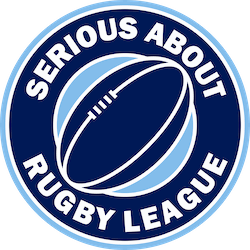










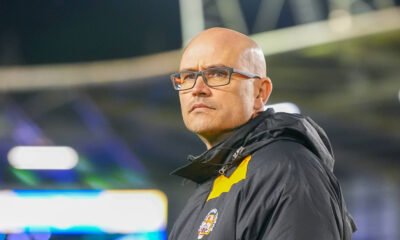

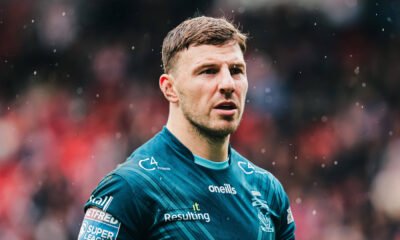

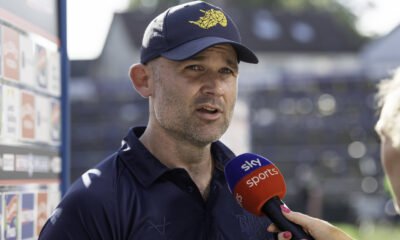



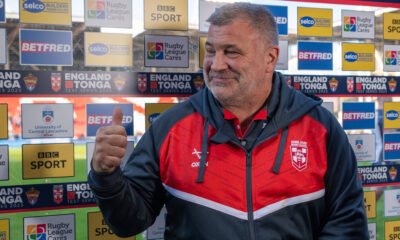





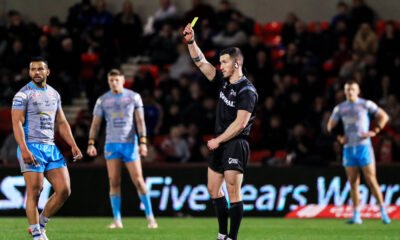

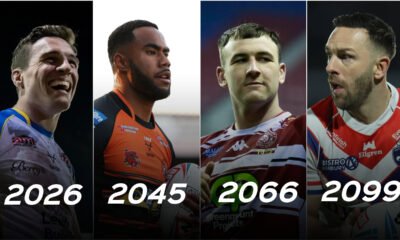

Todney Roberts
August 29, 2021 at 7:04 am
WHO GIVES A FLYINGFUCK????